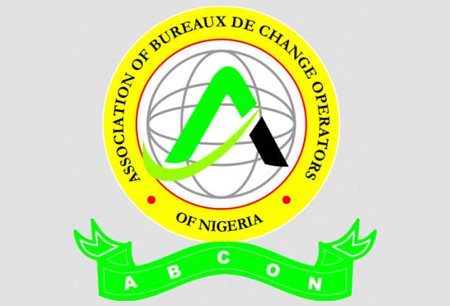The Association of Bureaux De Change Operators of Nigeria (ABCON) is seeking the merger of several Bureaux De Change (BDC) operators not recapitalisation of the industry, the group announced on Thursday.
The recommendation is to effectively help its corporate governance and rules of engagements with the apex bank.
The merger option was adopted for class ‘A’ BDCs in 2007/2008, which entitled them to $1 million weekly allocation with a N500 million capital base.
The group called for a similar business model through mergers and consolidation rather than outright review of the capital base of each operator.
It asked the Central Bank of Nigeria (CBN) to regulate emerging BDCs from the consolidation exercise.
Each of the CBN-licenced BDCs is capitalised to the tune of N35 million and should be allowed to willingly consolidate among themselves.
ABCON President, Alhaji Aminu Gwadabe, who broke the news in Lagos, said the group never asked for upward review of N35 million mandatory regulatory approved capital base for each BDC, but a merger of at least 10 BDCs to form a new capital of N350 million.
The move, he said, would enhance the scope of operation and diversification of sources through various windows and reduce regulatory pressures.
He said merger of multiple BDCs into a stronger entity will prepare them for a higher role in the financial system, including handling of diaspora remittances or other offshore funds attracted to the economy to deepen forex access at the retail end of the market.
Gwadabe said the merger of multiple commercial banks in 2004 consolidation exercise by the apex bank is an example the apex bank could adopt for the BDCs to streamline their numbers and present easily manageable operators for maximum impact in the foreign exchange market.
He said: “ABCON rejects reports calling for BDCs recapitalisation by a section of the media. The media quoted us out of context and we are working to put proper narratives”.
Continuing, he said the BDCs is seeking multiple mergers within the industry to present a reduced number of operators for more effective regulation.
“Instead of allowing each BDC to be recapitalised to the amount proposed by the Economic Advisory Committee which will likely lead to the extinction of many of our members as happened in 2014 when an outright review of the capital base was the only option.
We also advised that the CBN should not issue any license during the period to avoid venture capitalists taking over the business from the already skillful operators.
He said with over 40,000 Nigerians employed by the sub-sector, there was a need to support the BDC business for sustained economic growth and employment generation.
Gwadabe said foreign currencies dealt in by a BDCs are derived from private sources and such other sources which may include the CBN window as determined by the CBN from time to time for the purpose of funding Business Travel Allowance (BTA), Personal Travel Allowance (PTA), School Fees Payment abroad, Medicals, mortgage, personal home remittances and subscription.
He said ABCON has been for years training Compliance Officers to ensure they are acquainted with what is required of them, especially on monthly rendition of results and tracking illicit capital flows through compliance.
According to Gwadabe, BDCs are complying with the rendition of suspicious transactions reports as directed by NFIU, CBN, and EFCC.
He said BDCs are required to comply with all extant rules & regulations prescribed by the CBN, while the CBN closely supervises and monitors their operations.
“In compliance with the provisions of Bank and Other Financial Institutions (BOFIA) as amended, every BDC renders returns to the CBN in prescribed format and within the deadline stipulated by the CBN. The records of the BDCs are made readily available to the CBN examiners as and when requested including carrying out customer due diligence, corporate governance and tax returns,” he said.
He said that ABCON has over the years established itself as a key player in the BDC industry, and has also made several commitments and sacrifices to ensure that the sector continues to thrive despite all odds.
“The recognition of the role of BDCs in Nigeria’s financial sector remains the first step to building a sustainable and viable forex market that is comparable to what is obtainable in other developed economies. But getting the Nigerian BDC sector to where it is desired to be demands hard-work, quality leadership, regulatory foresight and sound government policies,” he said.




